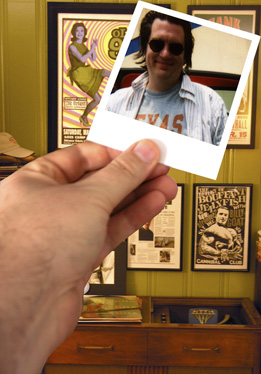 Apparently, classical music criticism is dying. Who reads classical-music reviews? Very few people. I’m sorry to say that even I read very few classical music reviews, and I actually buy and listen to lots of classical music.
Apparently, classical music criticism is dying. Who reads classical-music reviews? Very few people. I’m sorry to say that even I read very few classical music reviews, and I actually buy and listen to lots of classical music.
What’s the issue? Is it that people just aren’t interested? Do newspapers do a crappy job? Or is it that the classical music world needs to do a better job of explaining its relevance?
Greg Sandow, the author of this article and a classical music critic himself, seems to think that the classical world needs to think more about what it offers and how it talks about what it offers. “Why are we playing Brahms? What does Brahms give us that Mozart, Feist, or Bruce Springsteen can't? And how, exactly, is this week's Brahms performance different from last week's?”
Sandow also points out that the art playground is getting pretty crowded. The symphony and opera are competing with museums, galleries, dance and theater for the art dollar. But honestly, they are also competing with everything. In a saturated media environment, the symphony isn’t just competing with other art organizations, they are fighting with the Internet, television, books and films for a share of mindspace.
Once upon a time, people listened to classical music because they thought it was part of being a well-rounded individual. I think that it still is, but I am very much in the minority. I don’t think arts appreciation is what it used to be. And because of that, should any of the arts actually expect coverage?
The real answer is no, but, at least in Fort Worth’s case, the answer is yes. The fat wallets in West Fort Worth that pay for the opera and the Van Cliburn do expect coverage. And the Startlegram is always happy to oblige.
And not that it is a bad thing. I don’t read everything that Matthew Erickson writes, but I think he does a credible job. Maybe his other other 10 readers think so, too.
And, not to be Startlegram-o-centric, the FWWeekly had a great wrap-up of the opera festival that pointed out what I had been hearing through the grapevine – attendance was somewhat lackluster.
Sez FWWeekly: “Madame Butterfly was as solidly cast as anything the company has presented. Surprisingly, it didn’t do as well as expected at the box office. While Frau Margot and Falstaff met expected box-office returns, Butterfly reached only two-thirds of its goal. “We don’t know what happened,” [FWO general director Darren] Woods said. “We sold out three performances of Puccini’s La Boheme last season. Maybe opening Memorial Day weekend had an effect, or [Butterfly] has been done too often, or we were bucking a lot of graduations. We just don’t know.”
I think late May is a tough time for scheduling with graduations, Colonial and the long holiday weekend. The missus and I had (free) tickets to go to see Frau Margot, but we couldn’t find a babysitter. It’s a tough time of year. Does the festival format deserve some of the blame? Who’s to say? But FWOpera is sticking with it next year, and will screen Puccini’s Turandot, Donizetti’s Lucia di Lammermoor and Carlisle Floyd’s Of Mice and Men.
I’m really looking forward to Of Mice and Men. My wife and I saw the Fort Worth Opera version of Floyd’s Sussanah a few years ago and it was sublime.
So, yeah, I think classical music coverage should matter. But it shouldn’t be a loss leader. Give the readers some context, explain its relevance, and you may be surprised to find the readers actually read it.
Tuesday, June 19, 2007
Does Anyone Read About Classical Music?
Posted by
Steve-O
at
2:30 PM
![]()
Labels: classical music, Fort Worth, music, opera, Star-Telegram
Subscribe to:
Post Comments (Atom)

2 comments:
Steve-O:
Did you know that Fort Worth Opera also offers child care on it's Saturday performances? Call them and see what they can work out for you next season.
DOOHHHH!
Post a Comment